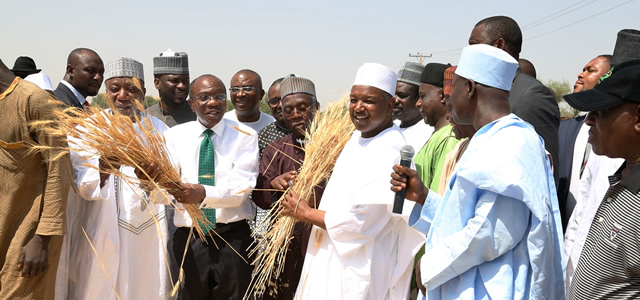Today, the Central Bank of Nigeria hosted the ninth meeting of the Financial Stability Board (FSB) Regional Consultative Group (RCG) for Sub-Saharan Africa in Abuja, Nigeria. At the meeting, members of the FSB RCG for Sub-Saharan Africa began by reviewing the FSB’s work plan and 2016 priorities, namely: promoting full, consistent and timely implementation of the international financial reforms; finalising the design of the remaining post-crisis reforms; and addressing new risks and vulnerabilities.
The RCG discussed vulnerabilities in the global financial system, regional financial stability issues and policy responses. In particular, the Group discussed the effects on the region of the pull back by global banks from correspondent banking services and other banking services. Members observed that growth in Sub Saharan Africa remained upbeat despite several global and domestic challenges. The impact of low commodity prices and the importance of diversification as well as the need for structural policy responses, supported by more proactive monitoring and analysis, were discussed.
Members shared experiences on their progress and the challenges that they face in the implementation of the global financial sector reforms in their jurisdictions. They also discussed spillover effects from the implementation of reforms in the home jurisdictions of global financial institutions and the measures that could be taken to overcome challenges and address any material unintended consequences.
Members discussed the implications for the region of the strengthening and introduction of a systemic perspective into international standards for the insurance sector in the wake of the crisis, including the work on the identification of global systemically important insurers, the extension to the insurance sector of the framework to address too-big-to-fail, and revisions to the Insurance Core Principles. Members also reviewed the key features of the global Legal Entity Identifier initiative and discussed possibilities for how the Identifier could be used by and be of benefit to RCG member countries (including to improve KYC/AML due diligence tools that can help to address the concerns related to reduction in correspondent banking services).
The members received an update on the progress made by a working group set up by the RCG to study home-host cooperation and information sharing among supervisors in the Sub-Saharan African region and on the World Bank’s proposed support to a pan-African initiative on this subject. The members also discussed how to further enhance the functioning and consultative role of the RCG.
The FSB RCG for Sub-Saharan Africa is co-chaired by Lesetja Kganyago, Governor, South African Reserve Bank and Godwin Emefiele, Governor, Central Bank of Nigeria. Membership includes financial authorities from Angola, Botswana, Ghana, Kenya, Mauritius, Namibia, Nigeria, South Africa and Tanzania, as well as the Central Bank of West African States (BCEAO) based in Senegal. Permanent observers include the Committee of Central Bank Governors of the Southern African Development Community, and the East African Community.



